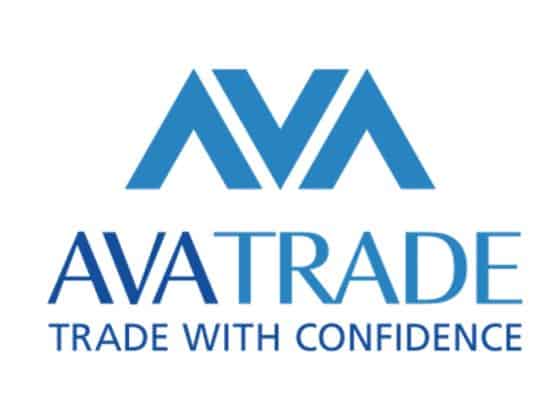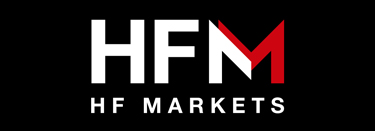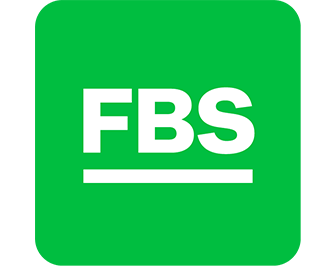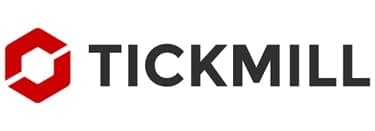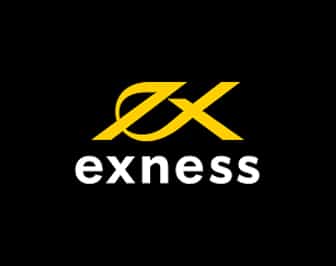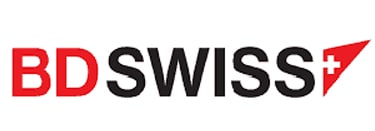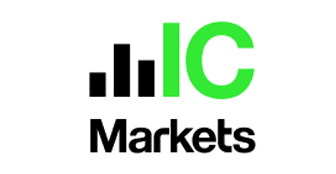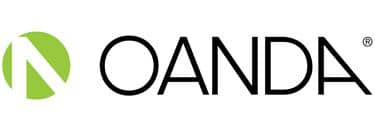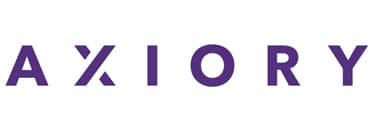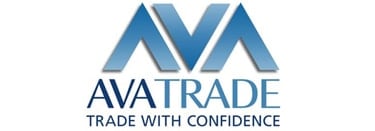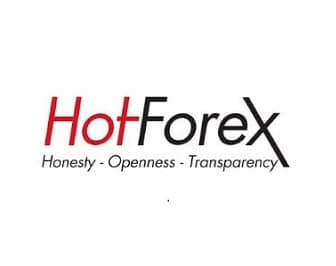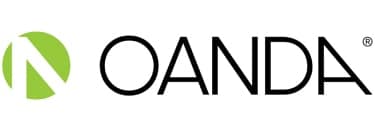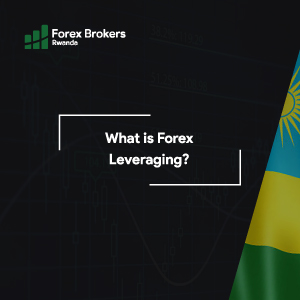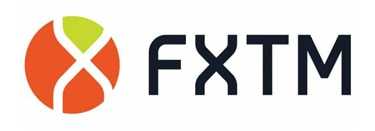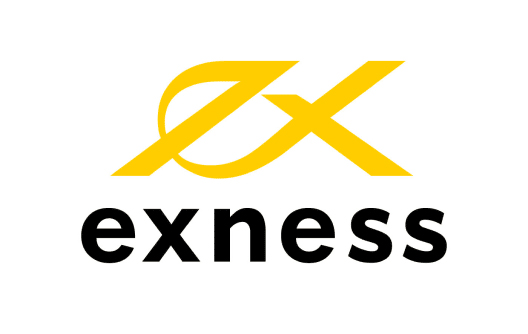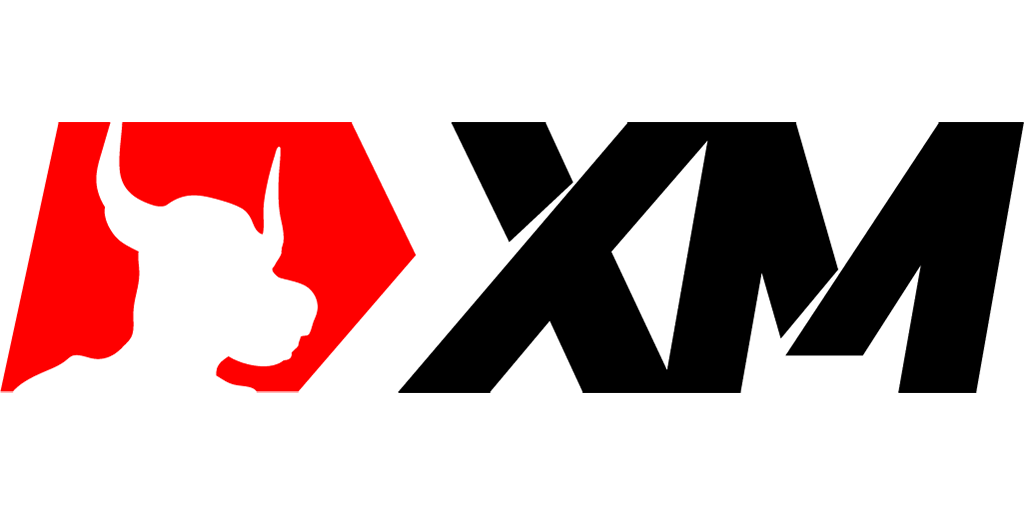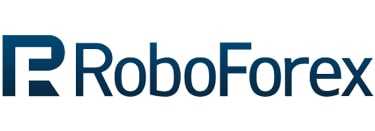
What is Forex Leverage in Rwanda?
What is leverage in Rwanda revealed. We tested and verified leverage in forex trading for Rwandan traders.
This is a complete guide to leverage in Rwanda.
In this in-depth guide you’ll learn:
- What is leverage?
- What is considered good leverage in Rwanda?
- How to approach leverage as a beginner trader?
- Our recommended forex brokers with the best leverage?
- How to compare forex trading brokers against each other?
- How do leverage affect profits in forex trading?
- How to choose leverage when trading as a Rwandan Trader?
- What is the best leverage for $50 (50939 RWF)?
- Which brokers offer 1:100, 1:3000, and 1:5000 leverages?
- How to calculate leverage as a Rwandan trader?
- Which forex brokers offer a low minimum deposit of $5 (5134 RWF)?
- Which brokers offer a signup bonus for first-time traders?
And lots more…
So if you’re ready to go “all in” with leverage for Rwandans…
Let’s dive right in…
10 Best Forex Brokers in South Africa for 2024
Rank
Broker
Review
Regulators
Min Deposit
Official Site
- Louis Schoeman
What is Forex Leverage in Rwanda? (Updated 2024)
What is Leveraged Forex Trading?
An introduction to Leverage and Margin
Advantages and Disadvantages of Leveraged Trading in Rwanda
- Typical Leverage Amounts offered by Forex Brokers in Rwanda
- How much leverage should I use?
- How to mitigate the risks of leveraged forex trading in Rwanda
- How to Choose the Right High-Leverage Forex Broker in Rwanda
- The Best High Leverage Forex Brokers in Rwanda
- FAQ
What is Leveraged Forex Trading?
Leveraged forex trading entails the act of trading foreign currencies using borrowed capital, enabling traders to control larger positions with a lesser amount of their own funds. This means that traders can amplify their exposure to the forex market and potentially magnify their profits or losses through the use of leverage.
By leveraging their trading positions, traders can take advantage of market movements and potentially increase their trading opportunities and potential returns.
An introduction to Leverage and Margin

Leverage
Trading leverage refers to the ability to trade with more capital than what is available in one’s own account. It is a service provided by several exchanges to assist traders. Leverage can be thought of as a secured loan from an exchange or a peer.
In this context, the collateral required is only a small portion of the loan amount, known as margin. For example, with 10X leverage, you would only need to provide 1/10th of the position value as collateral instead of the full amount.
Leverage allows traders to deposit only a portion of their account balance and still trade as if they had invested the entire amount. It provides the opportunity to increase potential returns without risking the entire account balance.
However, it is important to exercise caution and manage risk when using leverage. Many traders, particularly beginners, may misuse leverage by increasing their position sizes without considering the additional risk involved. This practice can be highly dangerous, regardless of the amount of leverage used. If the market moves against the trader’s position, it can quickly deplete the trading account, especially when trading with high leverage.
In certain situations, if the market moves unfavorably and the loss incurred by the trader equals the margin amount, the exchange may automatically close the trader’s position and keep the margin. This is particularly applicable to exchanges that provide “fixed leverage,” where the margin requirement is established at the time of the transaction. If the position goes underwater by more than the margin amount, the exchange will liquidate the trade to prevent further losses.
Another approach is cross leverage, which is commonly available with most forex brokers. It allows traders to consistently trade with the highest possible leverage. However, in this case, the exchange may lock up more of the trader’s balance as margin to ensure that potential profits can be paid out if the position moves against them.
Margin
The margin refers to the initial amount of money a trader needs to pay to enter a position. In margin trading, traders only need to provide a fraction of the position’s total value to open a trade.
Leveraged forex trading involves understanding margin, which is distinct from transaction fees. Margin trading allows traders to increase their position size with a smaller initial capital investment. It is important to fully comprehend how leverage functions as it can amplify both profits and losses.
The amount of leverage a trader can utilize is often limited by regulatory agencies such as ESMA. Margin requirements for popular currency pairs typically start around 3.33% in the United Kingdom, although specific requirements may vary depending on the forex broker, regulatory framework, licenses held by the broker, and the trader’s country of residence.
Cash Account vs Margin Account
Rwandan traders can engage in buying and selling securities through brokerage accounts. The two most common types of brokerage accounts are cash accounts and margin accounts.
The primary difference between these two account types lies in the financial requirements.
In a cash account, traders are only able to execute trades using the funds available in their account. They cannot use additional funds or borrow money from the broker to make trades. Before initiating any transactions, it is crucial for traders to ensure that they have an adequate amount of cash in their account.
On the other hand, in a margin account, traders have the option to borrow funds from the broker to supplement their own capital. This allows them to trade with greater buying power than what is available in their account. Margin accounts require traders to maintain a specific level of equity, known as the margin requirement, which is a percentage of the total value of the securities held in the account.
Advantages and Disadvantages of Leveraged Trading in Rwanda

Advantages of leveraged trading in Rwanda:
Increased market exposure:
Leveraged trading allows traders in Rwanda to access larger market positions with a relatively smaller initial investment. This provides an opportunity to participate in the forex market with limited capital.
Potential for amplified profits:
By leveraging their trading positions, traders can potentially generate higher profits when successful trades are made. The ability to control larger positions than the available capital can magnify the gains.
Diversification of trading strategies:
Leveraged trading enables traders in Rwanda to diversify their trading strategies by accessing a broader range of markets and instruments. It allows them to explore various trading opportunities beyond their initial capital limitations.
Disadvantages of leveraged trading in Rwanda:
Increased risk:
While leverage can amplify potential profits, it also significantly increases the risk of losses. Trading with borrowed capital means that losses can exceed the initial investment, potentially leading to substantial financial losses.
Limited margin for error:
Leveraged trading requires careful risk management as even small price fluctuations can result in significant losses. Traders need to be vigilant in monitoring their positions and implementing effective risk management strategies to mitigate potential losses.
Emotional stress:
The high level of risk associated with leveraged trading can create emotional stress for traders in Rwanda. Large losses can lead to emotional reactions and hasty decision-making, which may further exacerbate the losses.
Overtrading and addiction risks:
The availability of leverage can entice traders to engage in excessive trading, driven by the desire for quick profits. Overtrading, however, can result in detrimental outcomes such as impulsive and poor decision-making, heightened transaction costs, and the possibility of incurring losses.
Limited regulatory protection:
Traders in Rwanda need to be cautious when engaging in leveraged trading as there may be limited regulatory protection. It is important to choose a reputable and regulated broker to ensure transparency, security of funds, and fair trading conditions.
Typical Leverage Amounts offered by Forex Brokers in Rwanda

Brokers typically provide leverage in predetermined amounts, which may vary across different platforms. The specific leverage ratios offered depend on the laws and regulations governing each broker. Here are some common leverage ratios:
Leverage up to 1:50:
By employing a leverage ratio of 1:50, you gain the capacity to engage in trades with $50 for every $1 present in your account. Suppose you’ve allocated an investment of $500; in that case, you can actively participate in the market with a trading potential of up to $25,000. This leverage empowers you to assume more substantial positions within the market, thereby increasing the possibility of augmenting your profits.
Leverage up to 1:100:
A leverage ratio of 1:100 means that for each dollar in your account, you can trade up to $100 in value. This ratio is typically associated with a standard lot account. For instance, with a minimum deposit of $2,000, you would be able to control positions worth $200,000.
Leverage up to 1:200:
A leverage ratio of 1:200 indicates that for every $1 in your account, you can trade up to $200 worth of currency. This leverage ratio is commonly used for mini-lot trading accounts. With a typical minimum deposit of $300, you can trade up to $60,000.
Leverage up to 1:400:
A leverage ratio of 1:400 means that for every $1 in your account, you can execute a trade for $400. Some brokers offer 400:1 leverage on mini-lot accounts, but it’s important to exercise caution when using high leverage on a mini account.
It is crucial to emphasize the significant risks associated with trading at high leverage, such as 400:1. For instance, depositing $300 into a forex account and engaging in trades with 400:1 leverage exposes one to the possibility of losing the entire amount in mere minutes. In fact, a solitary unsuccessful trade at this leverage ratio could potentially lead to a staggering loss of $120,000. Traders must exercise careful deliberation regarding their risk tolerance and approach the use of leverage responsibly.
How much leverage should I use?

In the realm of forex trading, the leverage ratio deemed most suitable generally falls within the range of 1:10 to 1:100, in accordance with established industry norms. Research, surveys, and reliable broker data indicate that a significant proportion of retail traders, amounting to a majority, tend to favor leverage ratios of no more than 1:10. Additionally, approximately 17% of traders opt for a higher leverage ratio of 1:100.
European regulations recommend limiting the maximum leverage to 1:20 – 1:50 for various trading products. For cryptocurrencies like Bitcoin, the leverage on most platforms typically ranges from 1:2 to 1:5.
However, it is important to note that leverages of up to 1:1000 may be offered by certain brokers. Traders who are driven by emotions and wish to increase their position size significantly, even without sufficient capital, may choose such high leverages.
How to mitigate the risks of leveraged forex trading in Rwanda

To mitigate the risks associated with leveraged forex trading in Rwanda, it is crucial to adopt careful planning and implement effective risk management strategies. Here are some steps to consider:
Education and knowledge:
For individuals trading for the first time, it is highly advisable to initiate their self-education journey promptly. Regardless of the extent of their current experience in Forex trading, there exists an abundance of untapped knowledge awaiting exploration. The dynamic and ever-evolving nature of the market ensures a constant stream of updates and invaluable insights that can be acquired.
Realistic goals and expectations:
Set realistic profit expectations and establish achievable trading goals. Avoid the temptation to pursue overly ambitious returns. Maintain a long-term perspective and steer clear of high-risk strategies that could lead to substantial losses.
Risk management:
Implement effective risk management practices to safeguard your capital. Set appropriate stop-loss orders to limit potential losses on individual trades. Consider using risk-reward ratios to evaluate potential profitability against the risk of each trade. Determine the maximum percentage of your trading capital you are willing to risk on any single trade.
Portfolio diversification:
Avoid concentrating all your trading capital in a single currency pair. Diversify your trades across different currency pairs to spread the risk. This can help mitigate losses if one trade goes against your expectations.
Sufficient capitalization:
Ensure that you have adequate trading capital before engaging in leveraged forex trading. Overleveraging or trading with insufficient funds can increase the risk of margin calls and potential account liquidation. Sufficient capital provides a buffer against potential losses.
Choose a reputable broker:
Select a regulated forex broker in Rwanda that offers transparent and fair trading conditions. Verify that the broker is registered with relevant regulatory authorities such as the Securities and Exchange Commission (SEC) or the Association of Rwandan Interbank Settlement System (NIBSS). Conduct research on the broker’s reputation, reviews, and customer support services to make an informed choice.
Practice with a demo account:
Prior to trading with real money, utilize a demo account to practice and familiarize yourself with the trading platform, order types, and execution process. This allows you to test different strategies and gain experience without risking actual funds.
Continuous monitoring and analysis:
Stay updated on market trends, economic news, and events that can impact currency prices. Regularly monitor your trades and adapt your strategies as necessary. Utilize technical and fundamental analysis to make well-informed trading decisions.
Emotional discipline:
Exercise control over your emotions and avoid impulsive trading decisions driven by fear or greed. Stick to your trading plan and refrain from overtrading or chasing losses. Emotional discipline is vital for long-term success in leveraged forex trading.
Seek professional advice if needed:
Consider seeking guidance from a financial advisor or experienced forex trader to gain insights and advice on risk management strategies. Their expertise can help you navigate the complexities of leveraged trading and make more informed decisions.
How to Choose the Right High-Leverage Forex Broker in Rwanda

When selecting a high-leverage forex broker in Rwanda, it’s important to consider the following factors:
Regulation:
Make sure the broker is regulated by a reputable financial authority in Rwanda, such as the Capital Markets Authority (CMA). Regulation ensures that the broker operates within defined guidelines and offers a level of protection for investors.
Leverage options:
Check the leverage levels provided by the broker. Assess your risk tolerance and trading strategy to determine the appropriate leverage for your needs. Ensure that the broker offers high-leverage options that align with your trading requirements.
Fund security:
Look for brokers that prioritize the security of client funds. Check if they segregate client funds from their operational accounts and if they provide additional insurance or protection for client deposits. This helps safeguard your funds in case of any financial issues faced by the broker.
Trading platform:
Evaluate the trading platform offered by the broker. A user-friendly and stable trading platform with advanced charting tools, order execution capabilities, and risk management features can greatly enhance your trading experience. Consider if the broker supports popular platforms like MetaTrader 4 or 5 or if they offer their own proprietary platform.
Instrument variety:
It is of utmost importance to ensure that the broker you select offers a comprehensive array of currency pairs and diverse financial instruments that cater to your specific trading interests. The availability of a wide range of markets and instruments presents several noteworthy benefits.
Pricing and spreads:
Compare the broker’s pricing structure, including spreads, commissions, and overnight financing charges. Lower spreads can reduce your trading costs, but be cautious of brokers offering extremely low spreads, as they may have hidden fees or poor execution quality.
Execution quality:
Look for brokers that provide fast and reliable order execution with minimal slippage. Efficient order execution is crucial, especially in high-leverage trading, as it ensures that your trades are executed at desired prices without significant delays or requotes.
Customer support:
Consider the quality and availability of customer support services. A reputable broker should offer responsive and knowledgeable customer support to assist you with any trading or technical issues. Check if they provide support through live chat, phone, or email, and if their support is available during your preferred trading hours.
Educational resources:
Assess if the broker provides educational resources, trading tools, tutorials, or webinars to support your learning and trading journey. Access to educational materials and market analysis can help improve your trading skills and keep you informed about market trends.
Reputation and reviews:
Research the broker’s reputation by reading reviews and feedback from other traders. Look for information about their track record, customer satisfaction, and any past regulatory issues. Independent review websites and online trading communities can provide insights into the broker’s reliability and performance.
The Best High Leverage Forex Brokers in Rwanda
In this article, we have listed the best Forex brokers that offer high leverage ratios to traders in Rwanda. We have further identified the forex brokers that offer additional services and solutions to Rwandan traders.
Best High Leverage MetaTrader 4 / MT4 Forex Broker in Rwanda
Min Deposit
USD 10
Regulators
CySec, FSCA
Trading Desk
MetaTrader 4 and MetaTrader 5
Crypto
Yes
Total Pairs
–
Islamic Account
No
Trading Fees
Low
Account Activation Time
24 Hours
Overall, FXTM is the best High Leverage MT4 forex broker in Rwanda. FXTM offers MetaTrader 4 alongside its unique and robust proprietary trading app. FXTM offers leverage of up to 1:2000 and provides negative balance protection on all retail trading accounts.
Best High Leverage MetaTrader 5 / MT5 Forex Broker in Rwanda
Min Deposit
USD 10
Regulators
CBCS, CySEC, FCA, FSA, FSC, FSCA, CMA
Trading Desk
MetaTrader 4 and MetaTrader 5
Crypto
Yes
Total Pairs
107
Islamic Account
Yes
Trading Fees
Low
Account Activation Time
24 Hours
Overall, Exness is the best High Leverage MetaTrader 5 forex broker in Rwanda. Traders in Rwanda may anticipate some of the lowest commission rates and narrowest spreads with Exness, which provides unlimited leverage.
Exness offers several trading accounts that can be used across all devices with MetaTrader 5.
Best High Leverage Forex Broker for beginners in Rwanda
Min Deposit
USD 10
Regulators
IFSC, CySec, ASIC
Trading Desk
Meta Trader 4
Crypto
Yes
Total Pairs
55
Islamic Account
No
Trading Fees
Low
Account Activation Time
24 Hours
Overall, XM is the High Leverage best forex broker for beginners in Rwanda. XM has more than 2.5 million clients in 190 global countries, and this makes it one of the largest brokers in the world.
Rwandans can trade more than 1,000 financial instruments with leverage up to 1:888 according to their trading account balance.
Best Low Minimum Deposit Forex Broker with High Leverage in Rwanda
Min Deposit
USD 5
Regulators
CySEC, FSC, CFTC
Trading Desk
MetaTrader 4 and MetaTrader 5
Crypto
No
Total Pairs
47
Islamic Account
Yes
Trading Fees
Low
Account Activation Time
24 Hours
Overall, HF Markets is the best Low Minimum Deposit Forex Broker with High Leverage in Rwanda. HF Markets holds an office in Abuja and provides Rwandans with low minimum deposit accounts with leverage up to 1:1000.
Best High Leverage ECN Forex Broker in Rwanda
Min Deposit
USD 10
Regulators
IFSC
Trading Desk
Meta Trader 4
Crypto
Yes
Total Pairs
32
Islamic Account
No
Trading Fees
Low
Account Activation Time
24 Hours
Overall, RoboForex is the best High Leverage ECN forex broker in Rwanda. Apart from offering some of the best execution speeds, RoboForex is also known for its superior liquidity. RoboForex offers leverage up to 1:2000 and Rwandans can expect spreads that start from 0 pips.
Best High Leverage Islamic / Swap-Free Forex Broker in Rwanda
Min Deposit
USD 1
Regulators
IFSC
Trading Desk
Metatrader 4
Crypto
Yes
Total Pairs
300
Islamic Account
No
Trading Fees
Low
Account Activation Time
24 Hours
Overall, SuperForex is the best High Leverage Islamic / Swap-Free forex broker in Rwanda. SuperForex is an excellent choice for Muslim traders who want a choice between Swap-Free Accounts. SuperForex also offers leverage up to 1:2000 and accounts from 981 RWF.
Best Franc Trading Account Forex Broker with High Leverage in Rwanda
Min Deposit
12 USD / 12271 RWF
Regulators
No Regulation
Trading Desk
MetaTrader 4
Crypto
Yes
Total Pairs
–
Islamic Account
No
Trading Fees
Low
Account Activation Time
24 Hours
Overall, 7BForex is the best Franc trading account forex broker with High Leverage in Rwanda. 7BForex is a forex broker native to Rwanda that offers competitive trading conditions to Rwandans.
When Rwandans use 7BForex they can expect comprehensive educational materials and leverage up to 1:1000.
Best High Leverage NDD Forex Broker in Rwanda
Min Deposit
USD 10 / 10 670 RWF
Regulators
FSC
Trading Desk
MetaTrader4
Crypto
Yes
Total Pairs
60+
Islamic Account
Yes
Trading Fees
Low
Account Activation Time
24 Hours
Overall, Tifia is the best High Leverage NDD forex broker in Rwanda. Tifia is a popular ECN broker in Rwanda that provides the best pricing and competitive zero-pip spreads. Tifia offers three retail accounts and Rwandans can use leverage of up to 1:1000.
Best High Leverage STP Forex Broker in Rwanda
Min Deposit
USD 100
Regulators
Not Regulated
Trading Desk
MetaTrader 5, MetaTrader 4
Crypto
Yes
Total Pairs
–
Islamic Account
No
Trading Fees
Low
Account Activation Time
24 Hours
Overall, Kwakol Markets is the best High Leverage STP forex broker in Rwanda. Kwakol Markets holds the largest market share over all other brokers in Rwanda. With Kwakol Markets Nigerians can use either MetaTrader 4 or 5 and choose between leverage ratios from 1:1 up to 1:1000.
Best High Leverage Sign-up Bonus Broker in Rwanda
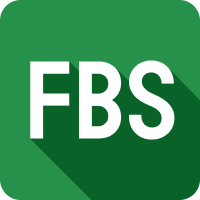
Overall Rating
- 4.7/5
Min Deposit
1 USD / 1 020 RWF
Regulators
IFSC, FSCA (South africa), ASIC, CySEC
Trading Desk
MetaTrader 4, MetaTrader 5, FBS Trader – all in one mobile trading platform.
Crypto
Yes
Total Pairs
250
Islamic Account
No
Trading Fees
Low
Welcome Bonus
$140 / 142 877 RWF
Account Activation Time
Instant
Overall, FBS is the best High Leverage sign-up bonus broker in Rwanda. FBS offers Rwandans access to some of the best sign-up bonuses with low minimum deposit requirements.
FBS also offers leverage up to 1:3000 on several retail investor accounts and the benefit that there is no slippage or requotes.
you might also like: Scam Forex Brokers in Country
you might also like: Social and Copy Trading Platforms
you might also like: Algorithmic Trading Platforms
FAQ
How much money do you need to trade with leverage in Rwanda?
Brokers may impose different minimum margin requirements, but as a general practice, they usually require a minimum deposit equivalent to at least 50% of the price of the desired financial instrument. This implies that you can potentially borrow up to 50% of the total trade value from the broker.
What is the best leverage for beginner Rwandan traders?
If you are new to forex trading, you should not use more than 1:10 leverage until you have gained more skills and knowledge to manage your risk tolerance more effectively.
What happens if you lose a leveraged trade in Rwanda?
When engaged in a leveraged trade, if the value of your position experiences an upward surge as a result of market fluctuations, there are typically no concerns. However, in the event that the value of your position declines to a level where it no longer satisfies the minimum margin requirements, your broker will take appropriate measures to safeguard you from further losses.
Do you have to pay back leverage to your broker?
Yes, there are consequences for borrowing money to invest, such as when you use margin trading. To make leverage more expensive, several brokers charge interest on margin loans.
Table of Contents






